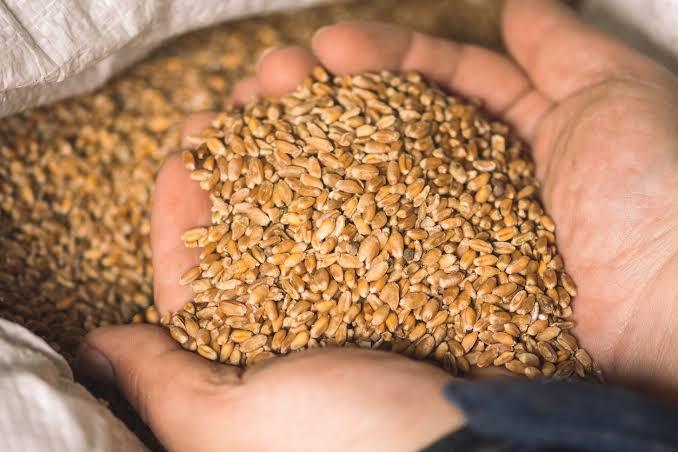Concerns are mounting in Punjab over the potential spoilage of large quantities of wheat, as more than 60 lakh metric tons of the harvested crop remain unsold and exposed across various mandis (market yards) in the state. This backlog stems from sluggish lifting and transportation, triggering fears of quality degradation amid unseasonal rain and storm forecasts.
According to officials from the Punjab Mandi Board and Food and Civil Supplies Department, only 58.56 lakh metric tons of the total procured wheat have been lifted and moved to storage facilities, leaving a significant surplus exposed to the elements. Several farmers and commission agents have raised alarms that any further delay could lead to moisture damage and fungal infestation, severely impacting the market value of the grain.
The procurement season, which began in April, witnessed strong arrivals from farmers, thanks to favorable yields. However, the pace of lifting by government agencies such as the Food Corporation of India (FCI), Punjab State Warehousing Corporation (PSWC), and others has lagged behind. This has caused mandis in Ludhiana, Sangrur, Mansa, and Bathinda districts to remain choked with wheat, often lying in open plinths or tarpaulin-covered stacks.
Officials admit that limited availability of transport, labour constraints, and logistics bottlenecks have contributed to the problem. “While procurement has been efficient, lifting and storage coordination haven’t kept pace,” said a senior Food and Civil Supplies official.
The situation is further complicated by IMD warnings of scattered thunderstorms and rains in northern India over the coming days, increasing the risk of grain spoilage in open areas.
Farmers' unions have demanded urgent intervention from the state government to ensure immediate removal and safe storage of wheat. “We work all year to produce a good crop. Leaving it at the mercy of the weather is both careless and unfair,” said Gurmeet Singh, a farmer from Barnala district.
Experts warn that spoiled or damp wheat could pose food safety concerns and may require costly drying or reprocessing, adding to the economic burden on both the government and farmers.
Follow & Subscribe:
👉 Agri-Food Update on LinkedIn for the latest updates and insights.
🌐 Visit us at www.agri-food-update.com for more information!



